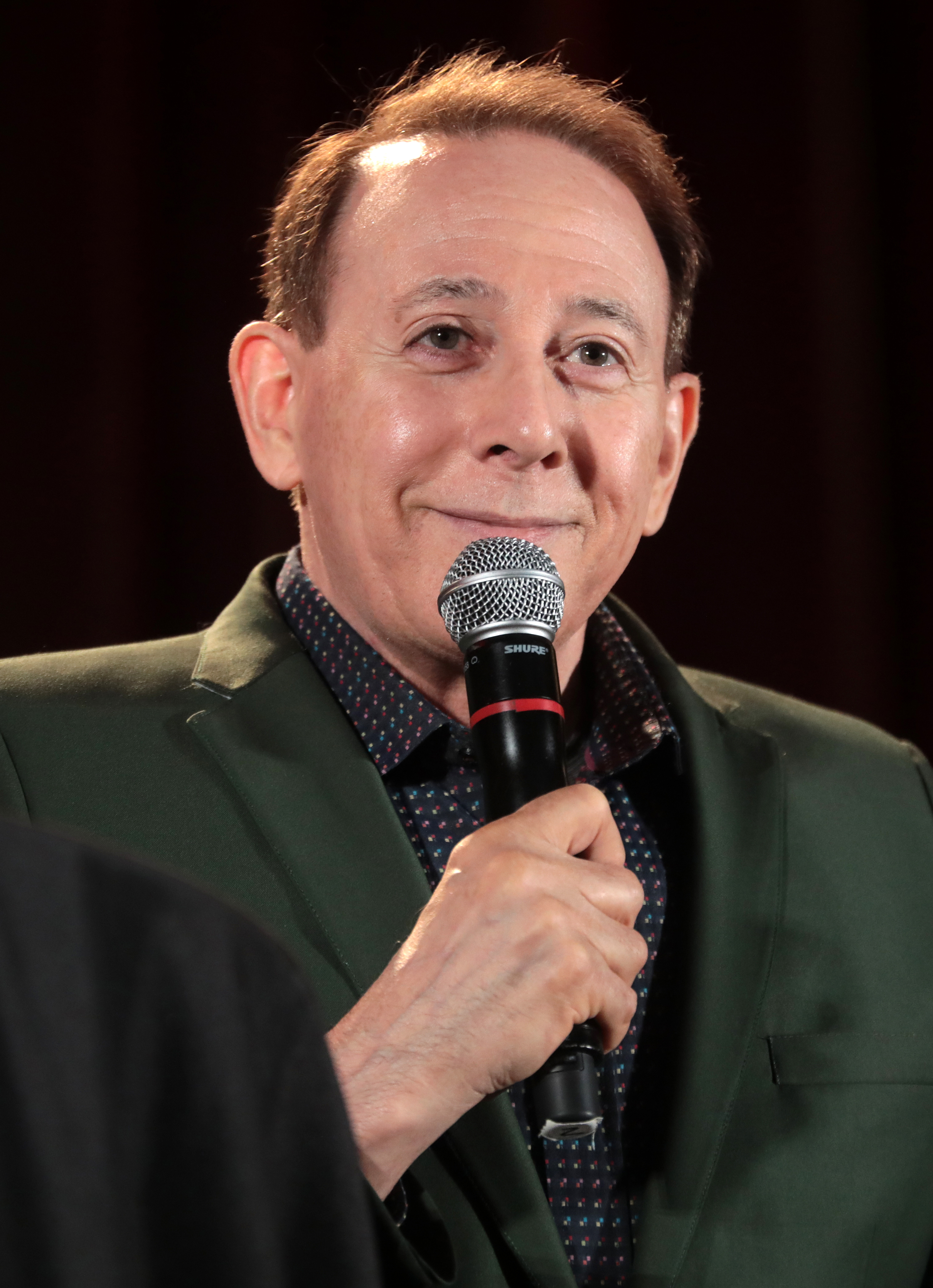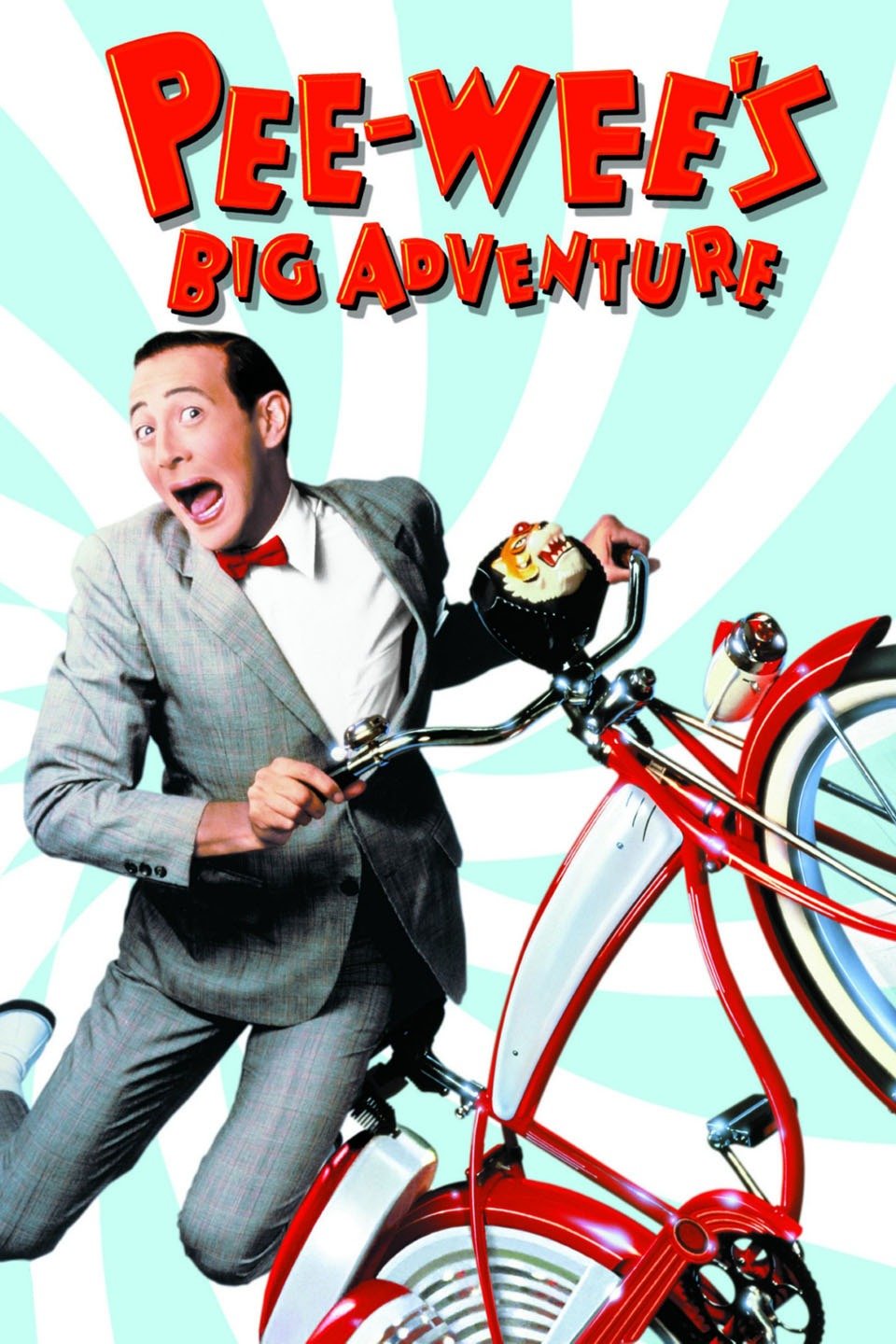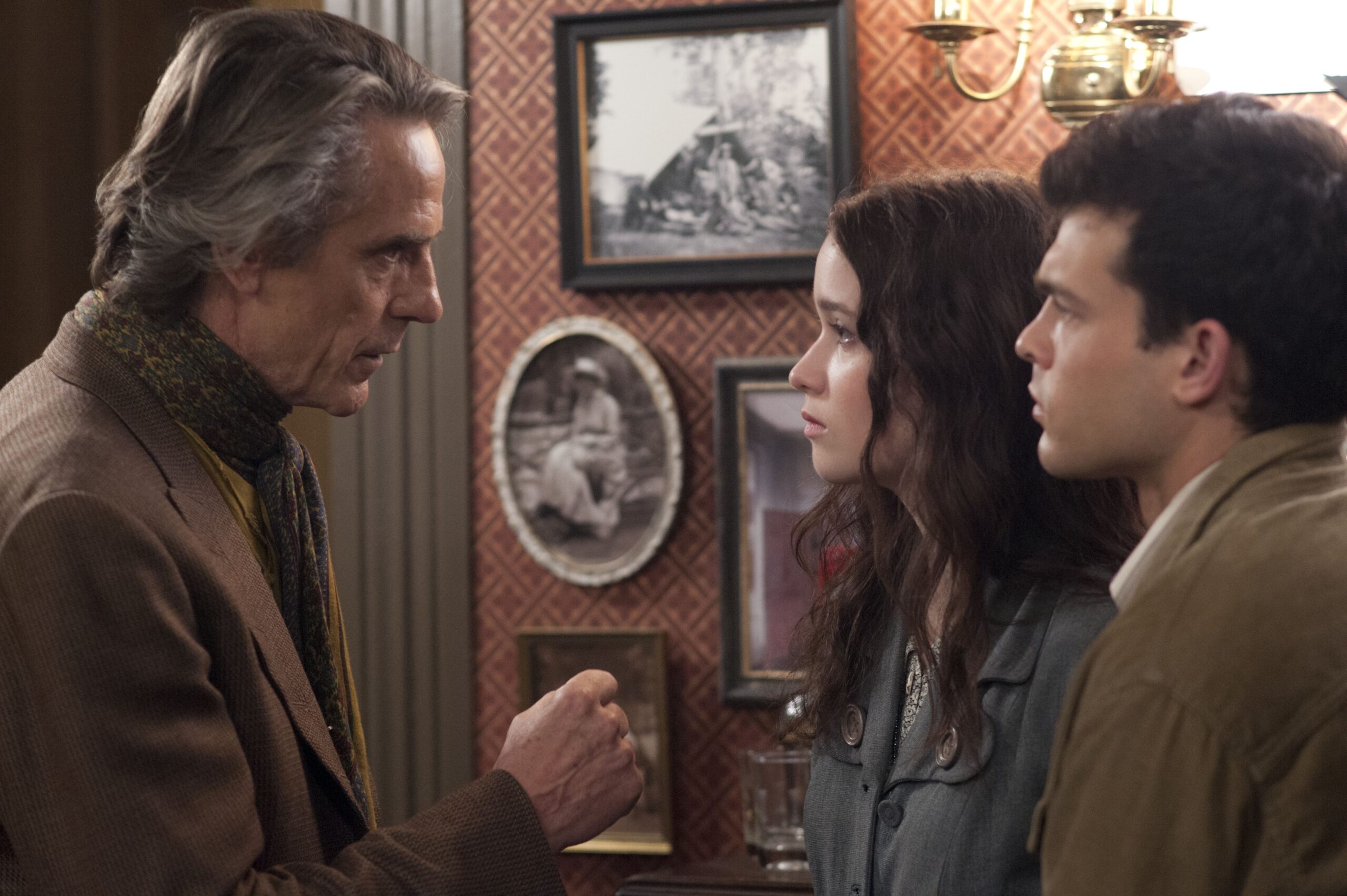
More than a month after the passing of Paul Reubens, the creative force behind the universally beloved character Pee-wee Herman, the precise medical details surrounding his death have been officially confirmed. Reubens, who captivated audiences for decades with his unique blend of innocence and eccentricity, passed away at the age of 70 on July 30. His representative confirmed the cause of death to Fox News Digital, bringing clarity to a period of private suffering that the actor had deliberately concealed from the public. This revelation enables a deeper understanding of the challenges he faced, while also prompting comprehensive reflection on the profound impact of his distinctive artistry and enduring contributions to the landscape of American comedy.
According to a death certificate obtained by The Blast, the immediate cause of Paul Reubens’ death was acute hypoxic respiratory failure. This serious medical condition, also known as hypoxemic respiratory failure, occurs when an individual’s blood does not receive an adequate amount of oxygen, as detailed by the Cleveland Clinic. It represents a critical impairment in which the lungs are unable to effectively release sufficient oxygen into the bloodstream, thereby preventing vital organs throughout the body from functioning properly. Healthline further clarifies that this condition can also arise if the lungs fail to adequately remove carbon dioxide from the blood, highlighting the severe respiratory compromise Reubens experienced.
The death certificate additionally listed acute myelogenous leukemia as the underlying primary cause of death, indicating a prolonged and arduous battle with this formidable disease. This particular form of cancer, as described by the National Cancer Institute, originates in the blood and bone marrow, making it the most common type of acute leukemia observed in adults. Healthline explains that it specifically involves the bone marrow producing immature white blood cells, which then develop into myeloblasts, resulting in uncontrolled proliferation. Moreover, Reubens was also battling metastatic lung cancer, a grave diagnosis indicating that the cancer had spread from its primary site to either the other lung or various other parts of his body, presenting a complex medical challenge.
For an extensive period of six years, Paul Reubens bravely and privately fought these cancers, a battle he chose to keep hidden from the public, even from many close to him. This decision to maintain his privacy was a testament to his characteristic discretion and, as expressed by his estate, his “trademark tenacity and wit.” In a poignant message that was released posthumously on his Instagram account, Reubens offered a heartfelt apology to his vast network of admirers and colleagues for his silence regarding his health struggles. He articulated this sentiment by writing, “Please accept my apology for not going public with what I’ve been facing over the last six years.”

Reubens’ posthumous statement further conveyed his immense gratitude and affection for those who had supported his career. He stated, “I have always felt a huge amount of love and respect from my friends, fans, and supporters. I have loved you all so much and enjoyed creating art for you.” The caption of the Instagram post, which accompanied Reubens’ personal words, further elaborated on his courageous private struggle. It eloquently described him as “an iconic American actor, comedian, writer, and producer whose beloved character Pee-wee Herman delighted generations of children and adults with his positivity, whimsy, and belief in the importance of kindness.” This collective statement underscored not only his resilience but also the enduring positive spirit he embodied.
The genesis of the iconic Pee-wee Herman character is rooted in Paul Reubens’ formative years within the vibrant Los Angeles improv scene. He conceived the childlike, bow-tied persona after joining The Groundlings, a celebrated comedy troupe, in the late 1970s, where his unique comedic sensibilities began to flourish. The character made its formal debut in 1981 with “The Pee-wee Herman Show,” a theatrical spectacle that premiered at the Roxy Theater on the Sunset Strip. This innovative production was designed to appeal to diverse audiences, offering distinct weekly matinees for children alongside spirited midnight performances for adults, demonstrating the character’s early and broad appeal.
The burgeoning success of “The Pee-wee Herman Show” soon transcended the confines of the Roxy Theater, reaching a much wider audience when it was adapted into a special for HBO. This national exposure proved instrumental in propelling Pee-wee Herman into the public consciousness, capturing the attention of major Hollywood studios. Warner Bros., recognizing the character’s unique cinematic potential, became interested in translating Pee-wee’s distinctive world onto the silver screen. This critical juncture led to the creation of “Pee-wee’s Big Adventure” in 1985, a film that notably marked the directorial debut of Tim Burton.

“Pee-wee’s Big Adventure” proved to be an unexpected and monumental box-office success, grossing more than $40 million and swiftly garnering a passionate cult following that endures to this day. The film’s quirky narrative and distinctive visual style established Pee-wee Herman as a cultural phenomenon. Following this cinematic triumph, Reubens reprised his role in the 1988 sequel, “Big Top Pee-wee,” though this endeavor did not replicate the critical acclaim or commercial success of its predecessor. Undeterred, Reubens concurrently embarked on a groundbreaking television project that would further define the character’s legacy.
In 1986, Paul Reubens launched his acclaimed CBS live-action children’s television show, “Pee-wee’s Playhouse,” which quickly became a Saturday morning staple for millions of viewers. The show ran for an impressive five seasons, characterized by its vibrant, imaginative sets, whimsical characters, and often surreal humor that appealed to both children and adults. Its innovative approach to children’s programming garnered significant industry recognition, earning a remarkable 22 Emmy Awards throughout its run, a testament to its creative and technical excellence. Reubens himself was nominated for 14 Emmy Awards for his work on the show, ultimately winning two for his outstanding contributions.
Reubens’ profound impact on entertainment was formally acknowledged in 1988 when he was honored with a star on Hollywood’s Walk of Fame, distinctly under the name of his beloved character, Pee-wee Herman, a testament to the character’s pervasive cultural influence. However, the early 1990s brought significant personal and professional challenges that temporarily altered the trajectory of his career. In July 1991, Reubens faced widespread public scrutiny following his arrest for indecent exposure in an adult movie theater in Sarasota, Florida, an incident that triggered immediate and severe repercussions from the industry.
The fallout from the 1991 arrest was swift and substantial. Despite “Pee-wee’s Playhouse” having already concluded its run, major retail chains such as Toys “R” Us decided to remove all Pee-wee Herman toys from their stores, signaling a significant commercial setback. Concurrently, Disney-MGM Studios canceled his studio tour, further illustrating the immediate negative impact on his public image and commercial partnerships. Reubens ultimately pleaded no contest to the charges, a legal resolution that included 75 hours of community service, and subsequently withdrew largely from the public eye throughout much of the 1990s.

A second legal challenge emerged in 2002 when Reubens was charged in Los Angeles with misdemeanor possession of obscene material. The original charge had been for possession of obscene material improperly depicting a child under the age of 18 in sexual conduct, though it was later downgraded to a misdemeanor charge of possessing obscene material. During this period, Reubens stated that he was a collector of erotica, a personal detail that became publicly known. For a period of three years following this incident, the actor was required to register his address with the sheriff’s office and was additionally prohibited from being around children without explicit permission from a parent or legal guardian. The charges were eventually dropped, but these incidents underscored the complexities of his public and private life.
Demonstrating remarkable resilience and an unwavering commitment to his craft, Paul Reubens initiated a significant comeback in 2010. He successfully reintroduced his acclaimed live stage show, “The Pee-wee Herman Show,” to enthusiastic audiences in Los Angeles, proving the enduring appeal of his iconic character. The production’s revival was so successful that it subsequently transferred to Broadway, where it enjoyed a triumphant run, captivating both longtime fans and new generations. This revitalized stage show was also broadcast as an HBO special, further solidifying his return to the comedic forefront and illustrating his ability to transcend past controversies.
Reubens’ return to the character culminated in the 2016 Netflix film, “Pee-wee’s Big Holiday,” in which he starred alongside Joe Manganiello and produced in collaboration with Judd Apatow. This cinematic venture brought Pee-wee Herman’s whimsical universe to a global streaming audience, showcasing the character’s timeless appeal and Reubens’ continued creative vitality. Beyond his definitive portrayal of Pee-wee, Reubens maintained a prolific and diverse acting career across various mediums. His filmography includes notable roles in major motion pictures such as Tim Burton’s “Batman Returns,” “Dunston Checks In,” and the critically acclaimed “Blow,” demonstrating his versatility as a performer.
His extensive television work further underscored his breadth as an actor, with memorable appearances on a wide array of popular series. These included comedic turns on “30 Rock” and “Everybody Loves Raymond,” showcasing his ability to adapt to different comedic styles. He also demonstrated his dramatic range and unique character interpretations in shows such as “Buffy the Vampire Slayer,” “Life During Wartime,” “Gotham,” and “The Blacklist.” In more recent years, he lent his distinctive voice and acting talents to series like “What We Do in the Shadows” and “DC’s Legends of Tomorrow,” illustrating his enduring relevance and commitment to the performing arts.

Paul Reubens was known for his dedication to privacy, a trait that extended even to the manner in which he conducted interviews earlier in his career. He maintained a policy of appearing as Pee-wee Herman for sit-down interviews with publications such as The Washington Post or late-night programs like “Late Night with David Letterman.” When journalists attempted to probe beyond the character, he would often “sulk and refuse to drop his impish persona.” He explained his preference to the Post in 1985, stating, “The choice I have made is that I simply do not like to do it. It is just the way I am about it.” This deeply ingrained personal preference for privacy and control over his public image informed his decision to keep his six-year battle with cancer a secret, a testament to his profound respect for his personal boundaries.
Despite his declining health in the final years of his life, Paul Reubens remained remarkably active and dedicated to his artistic endeavors, leaving behind a legacy that includes forthcoming projects. IMDb lists 11 acting credits under his name between 2018 and 2023, predominantly comprising voiceover work and television appearances, reflecting his sustained engagement in the industry. Audiences will have one final opportunity to witness his on-screen presence in Jessica Yu’s upcoming comedy, “Quiz Lady,” in which he makes a poignant cameo as himself, a role that was filmed in June 2022, just over a year before his death.
Reubens was also deeply involved in a significant biographical project at the time of his passing: a two-part HBO documentary about his life. This comprehensive film, directed by Matt Wolf and produced by the Safdie brothers, was announced in 2021 and benefited from the actor’s full cooperation and unprecedented access. Reubens provided the filmmakers with an extensive collection of new interviews, reportedly totaling up to 40 hours, offering invaluable insights into his multifaceted career and personal journey. Reflecting on his long-standing relationship with the network, he humorously remarked upon the documentary’s announcement, “I have been working with HBO since they were called Home Box Office. I am honored and excited to continue my long history there. I love HBO, but I am not going to marry them.” In addition to this, he was actively working on a personal memoir, with a first draft reportedly completed, suggesting further revelations about his extraordinary life.
Upon the news of Paul Reubens’ death, the entertainment community reacted with an immediate outpouring of tributes that often highlighted his private generosity and warmth, aspects of his character less visible to the broader public. Conan O’Brien, among many others, shared a touching anecdote on X (formerly Twitter), revealing, “Everyone I know received countless nonsensical memes from Paul on their birthday, and I mean EVERYONE.” This sentiment was widely corroborated by his peers, including Jack White, Questlove, Jimmy Kimmel, and Laraine Newman, who all spoke of receiving regular birthday gifts, calls, or texts from Reubens, underscoring his thoughtfulness and personal connection.

Further testament to Reubens’ enduring personal relationships came from David Hasselhoff, who disclosed on X that he and Reubens had been roommates during their time at the California Institute of the Arts. Remarkably, Reubens consistently maintained contact with every member of their class. Actress Natasha Lyonne affectionately recalled him as a warm and genuine friend, reflecting the deep personal bonds he had cultivated. Tim Burton, whose illustrious directorial career was significantly propelled by Reubens’ “Pee-wee’s Big Adventure,” offered a deeply personal tribute on Instagram, stating, “I shall never forget how Paul assisted me at the commencement of my career. It would not have transpired without his support. He was a great artist. I shall miss him.” These heartfelt accounts paint a portrait of a man who, despite his public persona and private struggles, was profoundly dedicated to his friends and colleagues.
Following his death, Paul Reubens was cremated, and his remains are to be interred at the Hollywood Forever Cemetery in Los Angeles, a fitting final resting place for an individual who left such an indelible mark on American entertainment. In a gesture characteristic of his altruistic spirit, Reubens included a specific request in his posthumous statement, urging that any expressions of sympathy be made in honor of his late parents, Judy and Milton Rubenfeld. He directed these tributes to “Stand Up to Cancer or organizations involved in dementia and Alzheimer’s care, support, and research,” thereby channeling remembrance into meaningful action. His legacy is one of boundless creativity, marked by a unique blend of “positivity, whimsy, and belief in the importance of kindness,” ensuring that the vibrant world he created and the remarkable spirit he embodied will continue to resonate for generations to come, forever enriching the tapestry of comedy.


